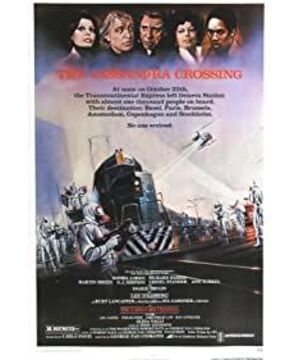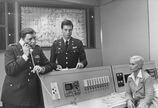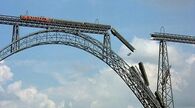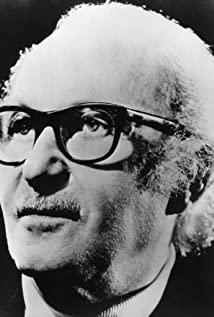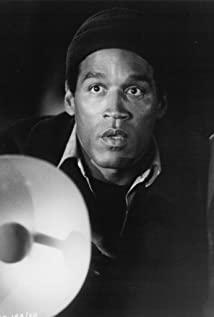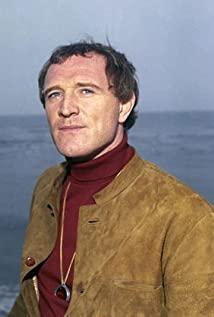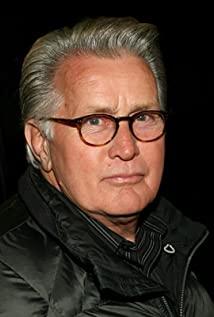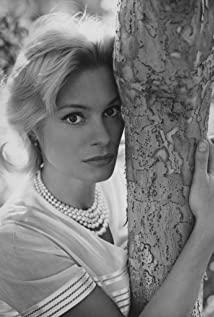At first, I just remembered that this film has a nine-minute long shot and wanted to taste it, but it seems that I remembered it wrongly, and I still couldn't see the film.
I searched the plot before watching it, and I also saw some comments from others. Because of the plague in the film, many people understood the connotation that this film wanted to interpret as the current Wuhan, but it was obviously too underestimated.
It can be said that what this film describes is like the present but not like the present. In terms of time, the film was released in 1976. It was co-produced by the United Kingdom, West Germany, and Italy. Switzerland to Poland, Geneva to Stockholm, Cassandra Bridge, the United States participated in the whole process, and the atmosphere of the Cold War was about to emerge.
It is not an exaggeration to say that this film laid the foundation for later disaster films. Sudden disasters, traders who are always behind, panicked civilians with closed information, confined spaces, resistance at the bottom, heroes who reverse the overall situation, are elements that any current disaster film will never let go of. But it would be a shame to only regard this film as a disaster film. In the two hours of the whole film, George spent an hour carefully portraying each character. Without such a foreshadowing, this film would not have such a superb group scene and countless small details and small easter eggs scattered in the film.
A few of my favorite clips: Herman and Max are sitting in the car, the sunlight outside the car is spilling in a little bit, and the whole picture shows a highly saturated orange. I suddenly connected with George's portrayal of Herman at the beginning, simple and happy, except for and in and with When the conductor was talking, he said lightly: I have escaped, and I really think he is very happy. But his escape, his collapse, his numbness, the moment he lit the lighter, and then connected to him sitting in the carriage, the afterglow of the sky, and the sadness of his old friend, did he feel the Nazis more deeply. persecution of people. This feeling is intuitive and is built on flesh and blood. I have to sigh, Strasberg is indeed a master of performance education.
And Robby's confrontation with Nicole. Gosh, how could Ava play a stupid woman so real that I have the urge to punch her across the screen. But did Robby love her? Maybe there will be a point, at the moment of leaving, let others take a good look at her. Is this love? Or does she just think her admiration and trust in herself is stupid and ridiculously sincere? I have no idea.
Every time Jennifer and Chamberlain are alone. I love Sophia Loren's gaze. The camera is not stingy with her face. Every shot that stops on her face is like a painting, like a sculpture in ancient Greece, hidden and beautiful, with afterglow. When her affectionate eyes looked at Chamberlain, she was like a fawn disturbed in the woods, and everyone would be fascinated by it. Who would have thought she was nearly forty by then?
The clip lets the first half develop in a slow-paced rhythm. MacKenzie and Dr. Strudner seem to be forever facing off. I prefer to think of them as hegemonic politics versus humanitarianism. Several arguments in the film ended with MacKenzie winning. But MacKenzie was a victim of his own. This leads to the point of view that the director wants to express. Through multiple single shots, we can clearly know the entanglement of the character Mackenzie. Shot from a distant table, he is in the middle of the table at the other end, with his head down, no subordinates, no doctor, just him. The whole picture is extremely cramped, and from here it can be seen that he is very stressed. Did he really want that train to head to the Cassandra Bridge? I don't think so, at the end, George uses two meaningful shots that only capture the eyes of MacKenzie and Scudner. McKenzie said: "You are a good doctor. That long paragraph was a warning, but on a deeper level, he was speaking to the doctor, or to himself. He closed his eyes, picked up his hat, put on his coat, ignored the assistant's question, and left. Like when he came at the beginning of the film, he left, accompanied by the words of the assistant's superior report on the phone. Maybe some people thought that he should be the one to be criticized, but in the end he was just the one who was pitied. He is no different from the guards in the carriage, but a tool that performs tasks mechanically. They are to be sacrificed. He knew the bridge was going to collapse, everyone knew, but could he make them stop? Everyone is just a trapped beast in a cage, and they have to be careful even when they breathe.
I love the first hour, but I love the last hour even more. When the train pulled into the station, I just thought it would be an ordinary shot in front of the train, but there was a little fog floating in the dark night.
I'm wrong. When the lights came on and rows of uniformed soldiers in protective suits stood by the railway, I got goosebumps all over. I saw a word on Weibo: indiscriminate cleaning
Soldiers entered the train, brutally shut every door, cleared personal belongings, shot Herman, and put the dead in iron coffins. All this is slowly progressing with the closed train. The uncontrollable roar, together with the flame of the soldering iron, pressed into the compartment without making a sound. There is no extra person in the world who knows what happened in the carriage, and everything has to be blocked. This paragraph is less than ten minutes, but everything George wants to express most is presented.
Next is the resistance of Chamberlain and his party. Even if this part is just taken out, it can fully support a commercial cool film. But this is not the point, even the lightest part, more like a foreshadowing.
Although the name of the film is "Cassandra Bridge", it is nearly two hours on the road leading to the Cassandra Bridge. The collapse only took two minutes, collapse, explosion, death. The laughter of the survivors, the laughter of the dead. Back to the fictional international organization health building, without the camera cutting far, following the trajectory of the beginning of the film, it is over.
I think it's like the present and not like the present. It can be used to describe Wuhan, but it is far more than just Wuhan. It was born in the last century and still lives in this century. It screamed for the last century, but it still has a strong voice in this century. I wanted to say something more about this film, but couldn't say anything. Everything from this film is projected into reality.
View more about The Cassandra Crossing reviews


